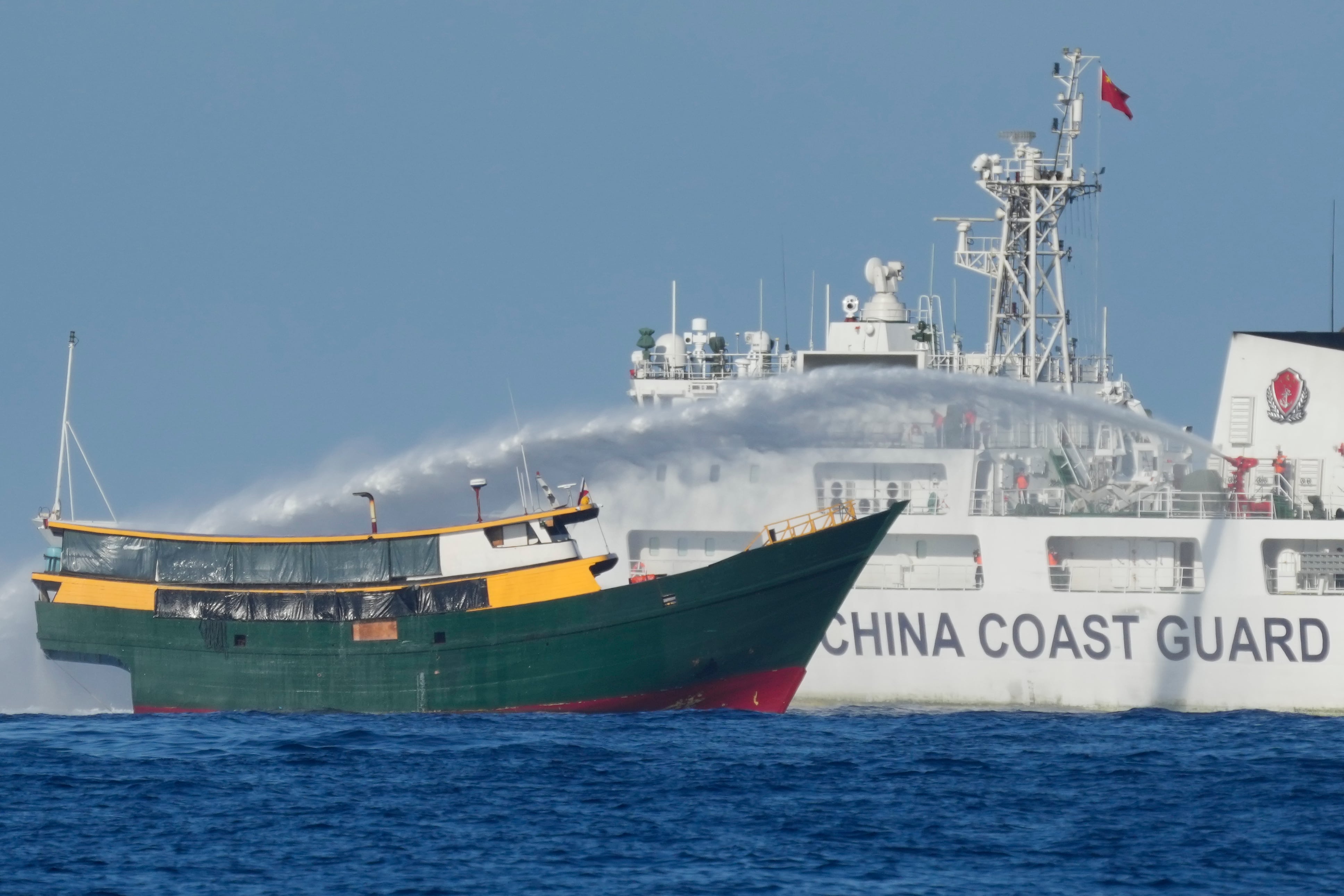MANILA, Philippines (AP) — China has failed to intimidate rival claimant states into surrendering their sovereign interests in the disputed South China Sea despite its intensifying “bullying tactics,” and the United States and other allied countries are ready to further boost deterrence against Beijing’s aggression, the U.S. Pacific Fleet commander said.
Adm. Stephen Koehler, who oversees the largest naval fleet command in the world, gave assurances Friday in a Manila forum of U.S. commitment to help defend freedom of passage and the rule of law in the Indo-Pacific region. The Pacific Fleet’s mission, he said, was to deter aggression across the region with allies and partners “and to prevail in combat if necessary.”
China’s tactics have “grown steadily and more aggressive with rammings, water cannons, lasers and sometimes worse,” Koehler said. “But despite these bullying tactics … China has failed to intimidate Southeast Asian claimants into surrendering their sovereign rights.”
Chinese officials did not immediately comment on Koehler’s remarks, but they have warned Washington in the past to stop meddling in what Beijing says is a purely Asian dispute that China has been trying to resolve peacefully.
Koehler cited how Indonesia, Malaysia and Vietnam have sustained or expanded their offshore oil and gas operations in their Exclusive Economic Zones in the South China Sea despite Beijing’s growing assertiveness. The Philippines, he said, has boldly exposed China’s assertive actions by publicizing the dangerous maneuvers of Chinese forces, including the use of powerful water cannons and laser beams.
“We’ve seen a laudable resilience and resolve to defend their maritime rights in the face of mounting pressure. Nearly all Southeast Asian littoral states are now prioritizing stronger maritime capabilities,” Koehler told the forum. “The U.S. Pacific Fleet is always ready to work with you to strengthen deterrence and show no individual country can be pushed around.”
Deterrence, he said, has worked to prevent a larger conflict and crisis that could hamper the flow of trade through the waterway and affect many economies.
Western and Asian ambassadors, including from the U.S., Canada, Australia, France, Germany, the European Union, Japan and New Zealand, spoke at the forum, which marked the 9th anniversary of the issuance of a 2016 international arbitration ruling that invalidated China’s claims to virtually the entire South China Sea.
The Philippines brought its conflicts with China in the South China Sea to international arbitration in 2013, a year after a tense standoff over a disputed shoal which Beijing’s forces surrounded and effectively seized. China refused to participate in the arbitration, rejected its outcome as a “sham” and continues to defy it.
U.S. Ambassador to the Philippines MaryKay Carlson said the arbitration ruling was a triumph for the Philippines and “a beacon guiding us toward a future where powerful countries cannot trample on the legal rights of other states.”
“Nine years on, Beijing has ignored the ruling and continues to operate with impunity,” Carlson said. “China continues to engage in illegal, coercive, aggressive and deceptive actions in support of its spurious claims.”
She renewed a warning that the U.S. is obligated to defend the Philippines under a 1951 Mutual Defense Treaty if Philippine forces come under an armed attack, including in the South China Sea.
With China’s “worrisome” rejection of the arbitration ruling, the Philippines has moved to strengthen its forces and territorial defense, including by pursuing legislation to demarcate the limits of its territory, which has further strained Manila’s ties with Beijing, Philippine Foreign Secretary Theresa Lazaro told the forum in a video message.
But she said that “it is a strategic consideration that we continue the dialogue and consultation with China, even amidst tensions that severely impact the bilateral relationship.”
Chinese and Philippine officials plan to hold another round of talks in Beijing on their increasingly tense disputes in the South China Sea later this month to prevent further escalation.





